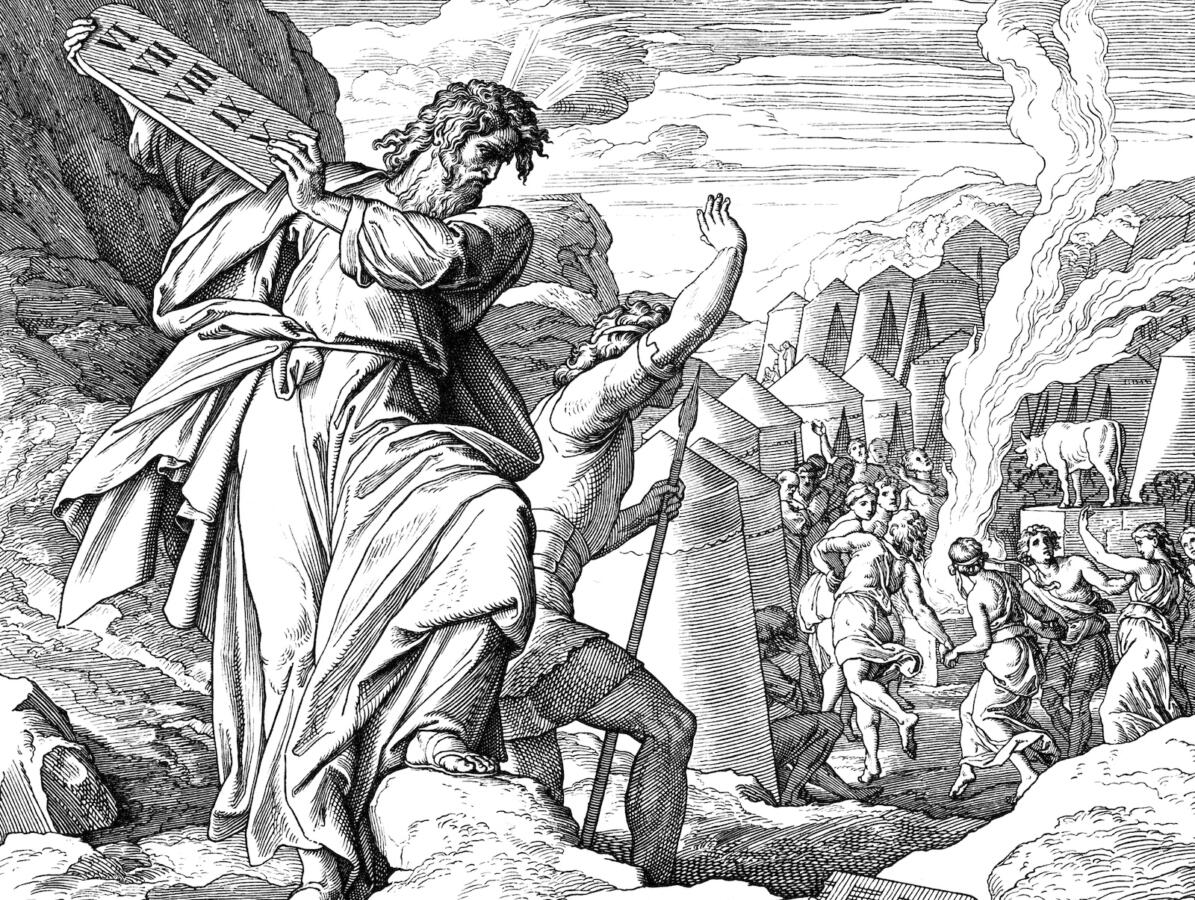In the yearly cycle of Torah readings, we approach the last chapters of Exodus with caution.
On the one hand, we celebrate the construction of the mishkan, the tabernacle that is the newly freed Israelites’ first shared spiritual project. Every hook, board and piece of embroidery is described at length, the details reinforcing the long journey from servitude to agency, culminating in the building of a new sacred space representing the nexus of the Divine-human partnership.
On the other hand, this new stage of national development is accompanied by a shard of the past: the sudden, unexpected worship of a golden calf. This was merely a replay of an everyday image of idolatry from Egypt, but it had no place in the Israelites’ new lives of spiritual monogamy. And yet with all that God had done for them — the plagues, the parting of the sea, the daily manna — it was still not enough to achieve an exclusive relationship.
In context, this act of audacity was perhaps understandable. The Israelites had not long enjoyed spiritual freedom. And with freedom comes responsibility, the weight of which can be isolating. Moses’ temporary disappearance atop Mount Sinai was enough to trigger deep-seated uncertainty about life with an invisible God.

Help us keep Jewish knowledge accessible to millions of people around the world.
Your donation to My Jewish Learning fuels endless journeys of Jewish discovery. With your help, My Jewish Learning can continue to provide nonstop opportunities for learning, connection and growth.
Imagine for a moment the scene Moses witnessed as he descended the mountain. Exodus describes a people caught up in a mutinous free-for-all — violent, out of control and unstoppable. Moses waited a day, but then his reaction was swift and unambiguous: “The next day Moses said to the people, ‘You have been guilty of a great sin. Yet I will now go up to the Lord; perhaps I may win forgiveness for your sin.’”
Ever the leader, Moses named their wrongdoing and then took responsibility for seeking forgiveness. No doubt he was angry and disappointed — perhaps even with himself for not recognizing that their faith was so fragile that his absence would lead to recidivism. But he was committed. He understood the power of a covenant that should not be shaken.
When Moses approached God, he named the sin and offered to every Jewish leader who followed a model of integrity: Name the wrongdoing and don’t try to couch it in ambiguous language. But then Moses behaves in a way that his new congregation would never have expected, telling God: “Now, if You will forgive their sin; but if not, erase me from the record which You have written.”
It is as if Moses is saying to God: My people have sinned, but they are still my people. If they are erased, then I am erased. We must see the construction of the mishkan through so that these lapses do not happen again. We must build a home together where You, God, can dwell to strengthen this nascent covenant.
Moses sought to turn regret into improvement. And isn’t that the most basic human project — far harder to construct than an altar and a portable sanctuary?
This month, the writer Daniel Pink released his new book, The Power of Regret: How Looking Backward Moves Us Forward. There he marshals research to demonstrate that regret can improve decisions and raise performance. Pink observes that moral regrets last the longest. They are rooted in betrayals, deceptions and infidelities. But regrets can also be harnessed to fuel improvement. “If we know what people regret the most,” he writes, “we can reverse the image to reveal what they value the most.”
What we regret shows what we value. Moses wanted God to know that he still valued his people so that God could still value them. Moses wanted the people to experience regret so they could renew their energy for what they truly valued.
In an essay on this section of the Bible, Rabbi Jonathan Sacks writes that in this Moses undertook the most courageous act of his life:
He is, in essence, saying to God: “It is not my distance that is the problem. It is Your distance. The people are terrified of You. They have witnessed Your overwhelming power. They have seen You bring the greatest empire the world has ever known to its knees. They have seen You turn sea into dry land, send down food from heaven and bring water from a rock. When they heard Your voice at Mount Sinai, they came to me to beg me to be an intermediary. They said, ‘You speak to us and we will hearken, but let not God speak to us lest we die’ (Ex. 20:16). They made a Calf not because they wanted to worship an idol, but because they wanted some symbol of Your Presence that was not terrifying. They need You to be close. They need to sense You not in the sky or the summit of the mountain but in the midst of the camp. And even if they cannot see Your face, for no one can do that, at least let them see some visible sign of Your glory.”
The mishkan was not built exclusively to recognize God’s glory. It was also built to achieve intimacy with God. As Moses teaches us, it is by drawing close and recommitting that we transform our wrongdoing into something durable and lasting.
This article initially appeared in My Jewish Learning’s Shabbat newsletter Recharge on Feb. 12, 2022. To sign up to receive Recharge each week in your inbox, click here.



